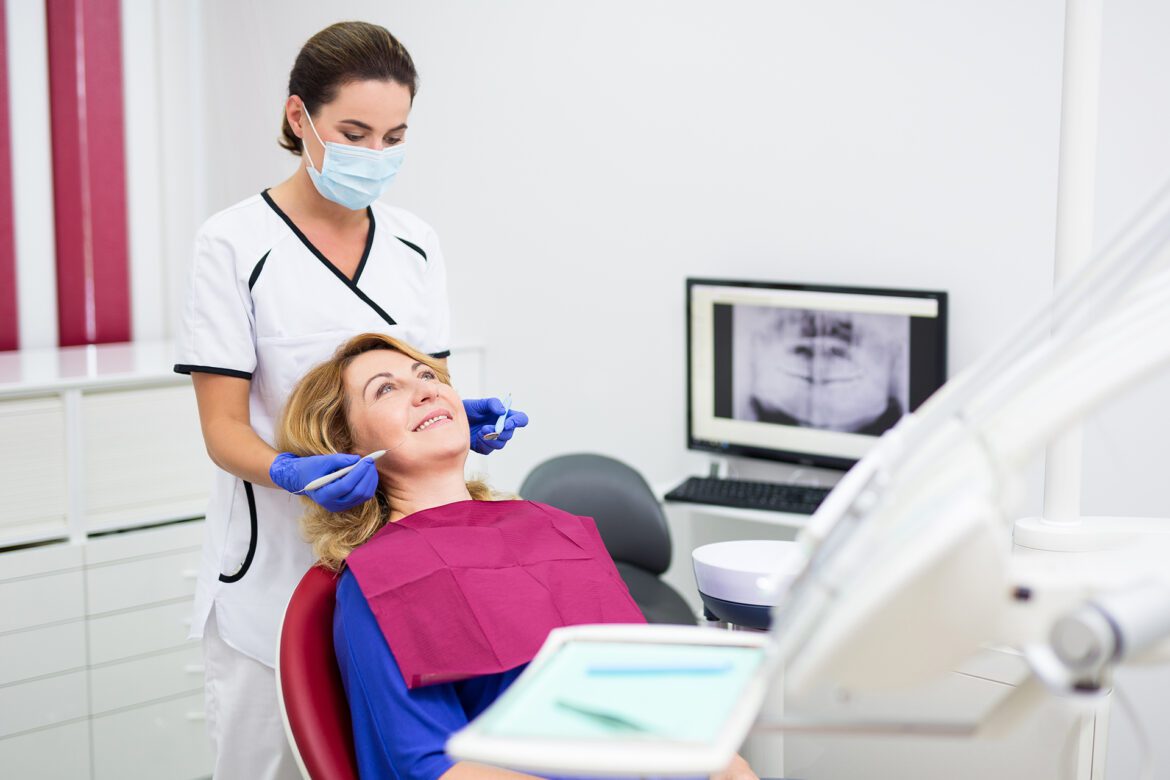Specialist dental surgeon Dr Theo Sioutis has urged women to pay attention to changes inside their mouth as a result of decreasing levels of hormones
Mood changes are often considered the most common symptoms of menopause, but health experts have warned of the physical signs that can strike inside your mouth.
Menopause describes the point in time when a person has gone 12 consecutive months without a menstrual period, usually affecting women between the ages of 45 and 55. Symptoms are triggered by lower hormone levels, but specialist dental surgeon Dr Theo Sioutis, from MyHealthcare Clinic, has urged women to pay attention to changes inside their mouth – especially if they have bleeding, inflamed and tender gums.
He said: “As a society we are getting much better at talking about the many symptoms of perimenopause and menopause, but one area which is often overlooked is the impact it has on oral health. Hormones affect the gums and this can be noticed during different stages of the menstrual cycle and during pregnancy, when gums can feel more sensitive. This is barely noticed in most people.”
Levels of oestrogen decline and soft tissues and bones are impacted during menopause. “In the mouth this can be presented as a greater susceptibility for gum disease, tooth decay and tooth loss,” highlights Dr Sioutis. He explained that declining oestrogen levels can lead to changes in the saliva, which acts as a natural defence for the oral cavity.
The transitional period can also lead to dryness in the mucous membranes throughout the body, including the mouth. He added: “A reduction in saliva can lead to a build-up of bacteria, which then attack the teeth and lead to higher levels of gum disease and tooth decay.”
People with gum disease will often have red, swollen and sore gums that bleed. However, tooth decay usually occurs when a person has toothache, tooth sensitivity, dark spots appearing on their teeth, bad breath or an unpleasant taste in their mouth.
Women going through the menopause also have a greater risk of developing osteoporosis, a condition that weakens the bones, making them fragile and more likely to break. “In the mouth this could lead to weakened bone structure, changes to gums and eventually tooth loss,” explains the dentist.
Another unusual symptom of the menopause is Burning Mouth Syndrome (BMS), which is said to affect 18 to 33 percent of all menopausal women. Symptoms include pain and discomfort in the mouth lips and tongue – which is often described as tingling – dry mouth, a bitter or metallic taste and loss of taste, writes The Menopause Charity.
How to improve oral health
Dr Sioutis recommends a good oral hygiene routine which includes brushing twice a day, flossing, and seeing your dentist for regular check-ups. It is also beneficial to quit smoking and reduce intake of foods and drinks containing lots of sugar.
Dr Sioutis added: “Visiting your dentist regularly will help you to maintain good healthy gums and tooth structure, and we can spot any potential problems in good time. Ideally we want to be looking at preventative measures, but when symptoms do occur it’s important to say they are normal and natural, and are as a result of hormonal changes in the body. I think it’s really important that women don’t feel isolated when they are experiencing these symptoms. There is help available”.

